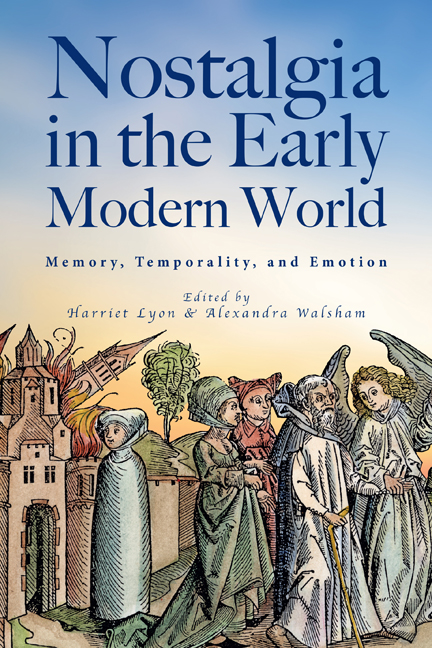7 - ‘This instrument is still there, but no longer functions’: Chorography, Nostalgia, and Politics in the Aftermath of the Eighty Years’ War
Published online by Cambridge University Press: 11 January 2024
Summary
A Vehicle for Nostalgia? Chorographies in a Contested Border Area
On several occasions the Calvinist minister and prolific chorographer Jacob van Oudenhoven reminded the readers of his two descriptions of 's Hertogenbosch in Brabant of the enduring allure of his fatherland. His first Beschrijvinge der Stadt ende Meyerye van 's Hertogenbossche, which was published in Amsterdam in 1649, was addressed to the States General and Prince William of Orange Nassau as well as to the magistrates of 's Hertogenbosch. His introductory text to his dedicatees remained closely harnessed to the literary conventions of the time. To demonstrate his erudition, van Oudenhoven cited the works of the classical authors Cicero and Ovid as the inspiration for his writing. He referred to the role of History as magistra vitae, and he saw it as his duty to his fatherland to bring its past to light.
He became more elaborate about his own motives for writing in the second edition of his chorography, which appeared twenty-one years later, in 1670, as Silva-Ducis aucta et renata of Een nieuwe ende vermeerderde beschryvinge van de Stadt 's Hertogen-Bossche.
While again quoting Ovid in his dedication to the magistrates of 's Hertogenbosch and the regional elite of its hinterland, he reminded them that ‘nothing is sweeter than the sight of the smoke rising from the chimneys of the home fires in the distance’. Although he had spent the greatest part of his life outside his native Brabant, he continued, he had never ceased to feel drawn to the sweetness of his homeland, which he would never forget. This attraction and attachment to his fatherland had evoked in him the duty to write a survey of its past, not only as an instruction for his contemporary readers, but also for future generations.
There might have been other motives than genre conventions which stimulated van Oudenhoven's praise for his home town. He might have wanted to attract the local and regional readership to his later text, which was published in 's Hertogenbosch. Given the threat of a French invasion at the time, he might have also felt the need to talk up the love of the fatherland as an incentive for his readers not to succumb to foreign invaders.
- Type
- Chapter
- Information
- Nostalgia in the Early Modern WorldMemory, Temporality, and Emotion, pp. 165 - 186Publisher: Boydell & BrewerPrint publication year: 2023

